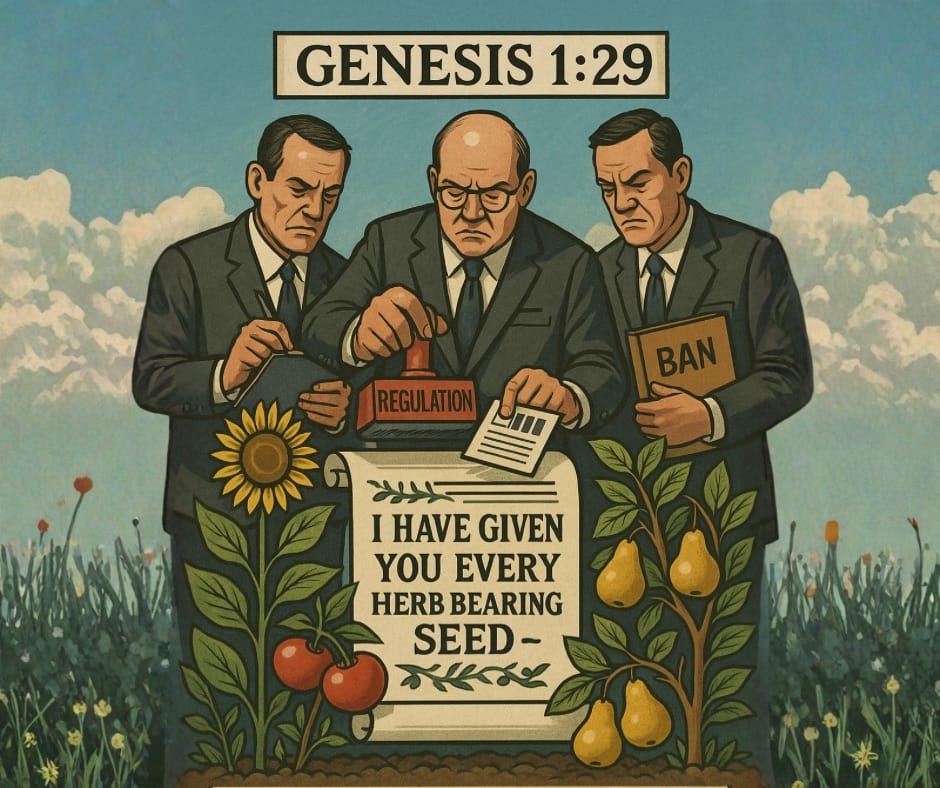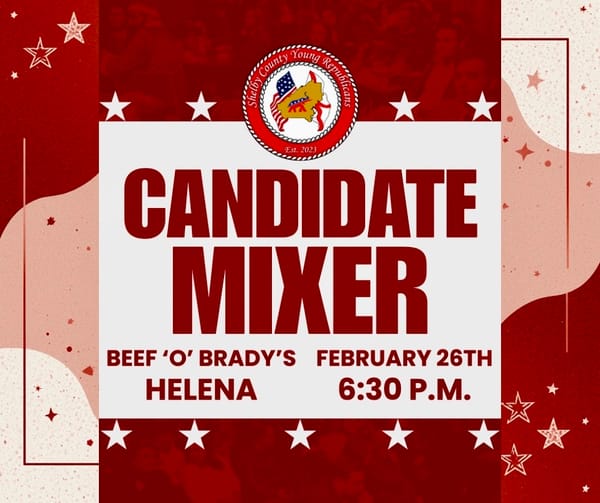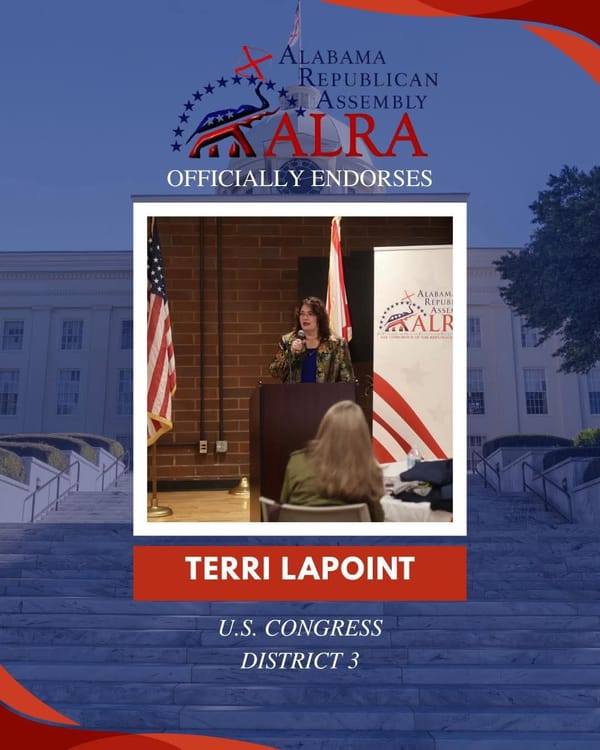From Purposefully Tarnished to Taboo
Part I of the “Pattern of Control” series by Alicia Boothe Haggermaker

Guest Opinion by Alicia Boothe Haggermaker
Every generation is told the same lie in a different accent: we’re protecting you.
In truth, it’s never been about protection — it’s about possession.
The pattern is older than empires: discover something that frees people, call it dangerous, outlaw it, synthesize it, patent it, and sell it back with a warning label.
Ancient Wisdom, Modern Amnesia
Long before laboratories, medicine grew in gardens and forests. Every culture knew its healers, midwives, and plant-keepers. Then came inquisitions and missionaries — holy men who called the women who healed “witches” and the tribes who prayed with plants “pagans.” Knowledge that once flowed through families was burned, buried, or baptized into silence.
The Salem witch trials were not about sorcery; they were about control of knowledge. When you criminalize the midwife and canonize the doctor, you don’t end superstition — you franchise it.
The Industrial Blessing
The pattern repeated as industry replaced church. Coca, poppy, hemp, and psilocybin — each went from sacred or medicinal to criminal the moment it threatened a profit stream. Hemp could replace paper, plastic, and petroleum, so it became the villain in Reefer Madness (1936). Opium and coca were outlawed just as their synthetic children, morphine and cocaine, became pharmaceutical royalty.
The rule is simple: if it grows freely, it’s suspicious; if it’s patented, it’s safe.
Science or Monopoly?
Bitter almonds contain amygdalin — what promoters once called vitamin B17. It was banned as quackery after threatening cancer-treatment monopolies (National Cancer Institute, 2021a; 2021b). Yet belladonna, whose alkaloids can stop a heart, earned FDA approval as atropine. Chemistry didn’t decide which plant lived or died; commerce did.
The moral crusaders — the “Karens” of every century — were just the loudspeakers. They shouted about public safety while the industrialists quietly captured the market. Each ban turned another free medicine into someone’s paycheck.
Modern Hypocrisy
Kratom was next. It cut into opioid profits, so headlines called it a killer. Toxicology reports later showed the real culprit behind most deaths wasn’t kratom at all — it was tramadol or fentanyl (CDC MMWR, 2019; Torrico et al., 2024).
And if anyone still thinks regulation stops experimentation, let me save you the suspense — it doesn’t.
I once met a guy in rehab for alcohol who told me, straight-faced, that if you pop twenty Tramadol you’ll trip like it’s LSD. He’d learned that firsthand.
(And before anyone gets self-righteous, I’ve never claimed perfection — life’s hard. I abused my own prescription meds as a young person on one of those pharmaceutical “cocktails” they said would fix me. I haven’t touched alcohol outside of herbal tincture drops in over a year, but I’ve seen enough to know the system doesn’t fix what it profits from.)
Y’all out here worried about hemp, but the black market’s full of pesticide-laced marijuana, and what you should really be worried about is sitting in your own medicine cabinet — or on your shelves and in your pantry.
All those patents, regulations, and warning labels didn’t stop that man from finding a way to see God through a pharmacy bottle. So spare me the lectures about “unregulated substances.” The truth is, the system just wants a monopoly on the mind. They don’t care what opens your perception — as long as they can invoice it.
The Cycle Repeats
Even the blue lotus has lived this loop once before. In ancient Egypt it was a temple sacrament — open to all who sought connection. Over time priests and rulers claimed it, buried it with kings, and erased it from common life. Now it blooms again, quietly in herbal teas and meditation blends, waiting its turn on the chopping block.
Have no fear, I’m sure Alabama legislators will be right on top of that, Rose! the moment this post circulates. You don’t see panic headlines about “the blue-lotus menace” yet, but give it time. All it takes is one think-tank memo or a local news segment about “unregulated psychoactives,” and the safety crusade will write itself.
They’ll call it protecting the public, but it’s really just another round of find a harmless flower, make it sound dangerous, and tax it into captivity.
Even scripture began with sovereignty: “I have given you every herb bearing seed…” Genesis 1:29 — a simple blueprint for healing that didn’t need a patent number. But somewhere along the way humanity decided God’s design needed a regulatory update. “Hold up,” we said, “He didn’t know what He was doing. Trust us. We prayed about it.”
Because heaven forbid people start doing something truly radical — like growing their own medicine and healing themselves without permission from Uncle Sam.
And honestly, if turmeric and Ceylon cinnamon weren’t already hiding in plain sight as kitchen spices, you’d probably need a prescription by now. Don’t worry though — I’m sure they’ll figure something out.
Alicia Boothe Haggermaker is a lifelong resident of Huntsville, Alabama, and a dedicated advocate for health freedom. For more than a decade, she has worked to educate the public and policymakers on issues of medical choice and public transparency. In January 2020, she organized a delegation of physicians and health freedom advocates to Montgomery, contributing to the initial draft of legislation that became SB267.
Opinions do not reflect the views and opinions of ALPolitics.com. ALPolitics.com makes no claims nor assumes any responsibility for the information and opinions expressed above.
References
Centers for Disease Control and Prevention (CDC). (2019, April 12). Notes from the Field: Unintentional Drug Overdose Deaths with Kratom Detected — 27 States, July 2016–December 2017. MMWR Morbidity and Mortality Weekly Report, 68(14), 326–327. https://www.cdc.gov/mmwr/volumes/68/wr/mm6814a2.htm
Food and Drug Administration (FDA). (2021, February 19). Warning Letter to Richardson Nutritional Center LLC / Nutriseeds, Inc. https://www.fda.gov/inspections-compliance-enforcement-and-criminal-investigations/warning-letters/richardson-nutritional-center-llcnutriseeds-inc-610544-02192021
National Cancer Institute. (2021a). Laetrile/Amygdalin (PDQ®) – Patient Version. Bethesda, MD: National Institutes of Health. https://www.cancer.gov/about-cancer/treatment/cam/patient/laetrile-pdq
National Cancer Institute. (2021b). Laetrile/Amygdalin (PDQ®) – Health Professional Version. Bethesda, MD: National Institutes of Health. https://www.cancer.gov/about-cancer/treatment/cam/hp/laetrile-pdq
Torrico, T., et al. (2024). Presence of Kratom in Opioid Overdose Deaths. Journal of Analytical Toxicology / PubMed Central (PMC). https://pmc.ncbi.nlm.nih.gov/articles/PMC10806006




